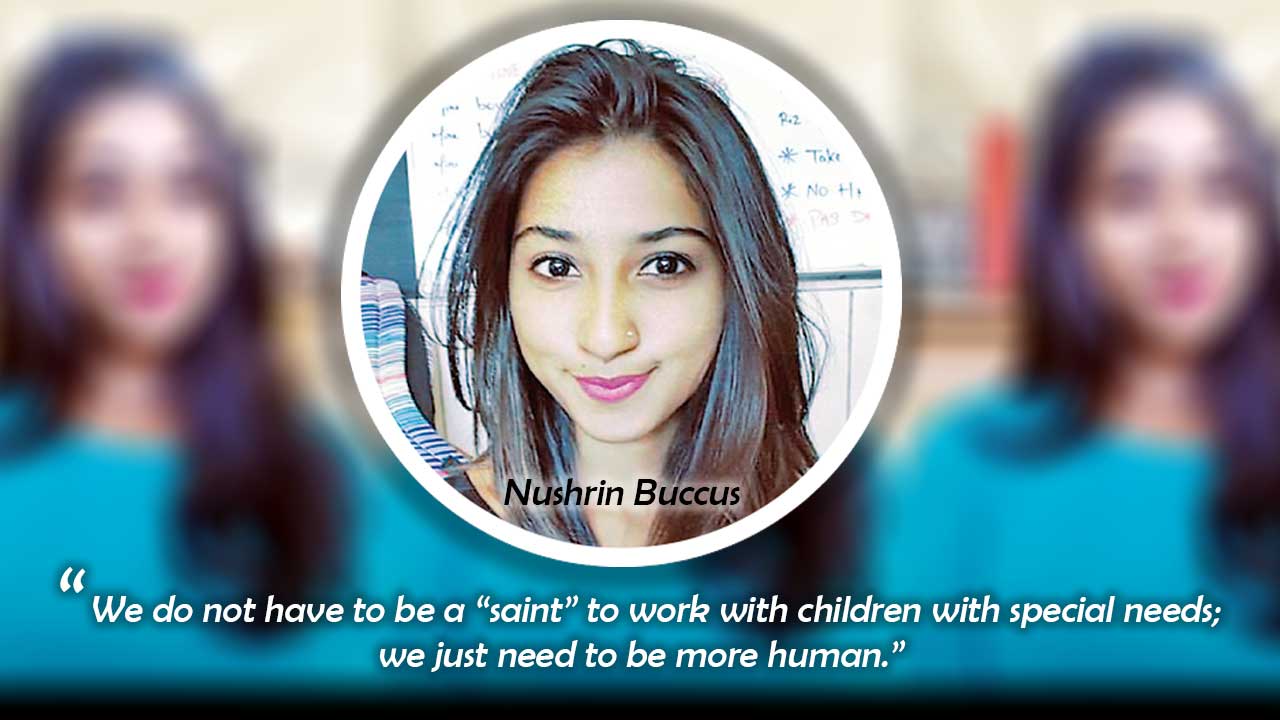
A Psychology student at Middlesex University, Bibi Nushrin Shadoo Buccus tells us about her experience of working with disabled children as ‘Psychology Intern’ at a special needs school.
What motivated you to study psychology?
I have a strong passion for psychology and related fields. Frankly, when you like something you don't need motivation to achieve it. Psychology is a field with no specific career field: you don’t know where this will land you. Indeed, a vast array of career prospects awaits any psychology graduate, but the ultimate point is job satisfaction and the opportunity to contribute to society differently.
 Tell us about your experience of working with disabled children.
Tell us about your experience of working with disabled children.
It is often said by people who mean well that working with disabled children “requires the patience of a saint”. Not true at all. All it requires is human compassion — something more of us have than we seem ready to acknowledge. We do not have to be a “saint” to work with children with special needs; we just need to be more human. When making the decision of working with such people, we are indirectly accepting the commitment of interacting with children with behavioural deficits, orthopaedic appliances, physical care needs, speech defects, learning disabilities, and other problems. Nevertheless, it was a great experience to work with children with disabilities. Realising that it is not their fault the way they are just the way we are this way.
What are the challenges faced by disabled children at school?
Well, the children are exposed to all those things that they are more likely to run away from. Such as they are in a way “forced” to learn and do all those things which are for their benefits but they are not ready to embrace it. They are exposed to a world where they need to adapt to stuffs which is difficult for them. For instance, children with learning and remembering disabilities are somehow forced to remember what the teachers are teaching them.
What do you think should be done to improve their lives?
According to me, instead of “forcing” them to do things they are not willing to do, we should come forward with a project where we try to figure out what these children want to actually do. While working with the children, I tried figuring out what appeals to them and what does not. Interestingly, I found out that most of them really have a concrete idea of what they like and what they do not. We should stop imposing on these children and should instead motivate them to build their identity and most importantly stop stigmatising them. Just like children who are considered to be “normal” by the society are encouraged to follow their dreams by providing them all sorts of support, in the same way we should encourage these kids to follow their dreams
Do you think it is important to have a psychologist attached to each school?
Yes, it is always important. Students come from various social backgrounds and have different kinds of problems that must be addressed. Peer pressure, stress, family issues, relationship problems, etc, all these affect not only academic performance but can also hamper personal development and cause other disorders. For example, in our education system, we have the tendency to just put the slow learners at the back and let them stare at trees and birds and we never try to help them out. We can’t help them without identifying their problem, and this is why we need psychologists at school.
What message do you have for our youth?
Communicate! Talk! Because everybody just keep things for themselves and assume people will read their minds. This is causing a lot of chaos in all kinds of relationships.
 J'aime
J'aime














